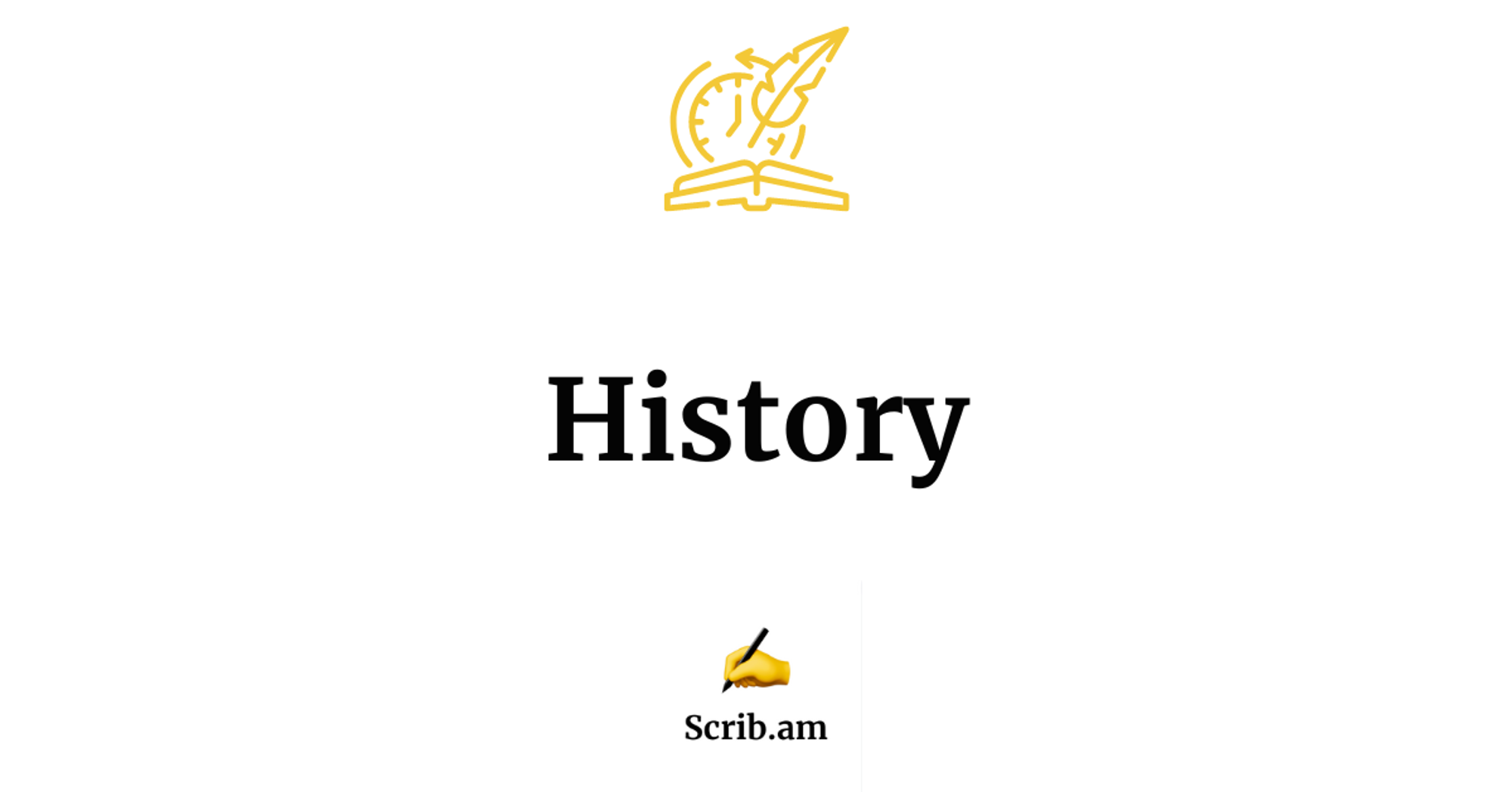History is the study and the documentation of the past.
Historical times started in Sumer, with the invention of writing.
Scholars generally agree that the earliest form of writing appeared almost 5,500 years ago in Mesopotamia (present-day Iraq). Early pictorial signs were gradually substituted by a complex system of characters representing the sounds of Sumerian (the language of Sumer in Southern Mesopotamia) and other languages.
Source: British Library

Why should we learn history?
Those who cannot remember the past are condemned to repeat it.
– George Santayana, The Life of Reason, 1905.
Beyond its scholastic value, history brings a wealth of actionable takeaways which should play a key part in our decision process.
Understanding the chains of reactions which led to major breakthroughs or massive catastrophes should inform our present and future initiatives. Times change, of course - the early 21st century isn’t the Victorian age and even less the Renaissance - but there are always patterns worth looking at.
As explained in this video by Ray Dalio, our economies and societies go through recurring cycles.
I needed to study past changes to understand what is happening now and help me to anticipate what is likely to happen.
Ray Dalio, introducing the video above
Despite all the rational arguments, we don’t seem to care that much about our collective memory.
Overall, our interest in history is decreasing, as demonstrated by this global curve on Google Trends, dating back to 2004.

Our collective interest in history slowly fades away.
If it’s that obvious that we should pay more attention to the lessons of history, why don’t we do it?
Benjamin M. Schmidt, a professor of history at Northeastern University, published a study demonstrating that, for the past decade, history has been declining more rapidly than any other major, even as more and more students attend college. With slightly more than twenty-four thousand current history majors, it accounts for between one and two per cent of bachelor’s degrees, a drop of about a third since 2011.
Source: The Decline of Historical Thinking, The New Yorker
A first explanation of our lack of interest in history would be that we are more inclined to practical subjects which have an immediate impact in our day-to-day activities, such as computer science, biology or economics.
Schmidt tells that post-recession (2008), the trend is for students to pursue majors that appear to have higher job prospects rather than follow their academic interests.
Source: Smithsonian Magazine
We’re driven by our high time preference, as discussed in my piece about Cathedral Thinking.
We consider that the distant past is a dusty affair, littered with strange stories of people and places confined to their epoch. How could we solve our most pressing issues by knowing how hominids started to walk (c. 4 million years ago) or what triggered the First World War?
We’d rather learn how to code or how to manage our finances, right?
It’s not that simple. As social creatures, to optimise our chances of progress in the game of life, we need a proper reference framework. History shouldn’t be dismissed as the field of bygone eras, it’s a critical repository of meaningful facts, events and interactions.
Republicans, for the past few decades, have depended on Americans’ inability to make sense of history in judging their policies. How else to explain the fact that, under Trump, they have succeeded in turning legal immigration into the excuse for all the country’s ills, when any clear historical analysis would demonstrate that it has been the fount of the lion’s share of America’s innovation, creativity, and economic production?
Source: The Decline of Historical Thinking, The New Yorker
Isn’t it just the way we are?
Disregarding the implications of our lack of interest in history, some people argue that we’re anyway doomed to reproduce the same patterns, all over again: blunders would be hard coded into our DNA, and memory would be by nature selective.

It might be the case that our young species, still in its teenage years, has a weird tendency to repeat the same mistakes, but, in doubt, we should rather bet on education than gamble on ignorance. There is always value in having wise people in the room when the time comes to make important decisions.
History is a free flowing source of untapped wisdom.
Historical knowledge is no more and no less than carefully and critically constructed collective memory.
William H. MacNeill, former president of the American Historical Association, quoted on mooc.org

